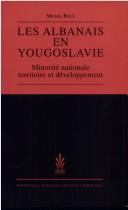| Listing 1 - 10 of 112 | << page >> |
Sort by
|
Book
ISBN: 0444415726 Year: 1977 Publisher: Amsterdam
Abstract | Keywords | Export | Availability | Bookmark
 Loading...
Loading...Choose an application
- Reference Manager
- EndNote
- RefWorks (Direct export to RefWorks)
Biomembranes --- 576.314 <063> --- 577.352.5 <063> --- Membranes (Biology) --- -Biological membranes --- Biological interfaces --- Protoplasm --- Cell membrane--Congressen --- Bioelectric phenomena in biological membranes. Biopotentials--Congressen --- Electric properties --- -Congresses --- Congresses. --- -Cell membrane--Congressen --- 577.352.5 <063> Bioelectric phenomena in biological membranes. Biopotentials--Congressen --- 576.314 <063> Cell membrane--Congressen --- -577.352.5 <063> Bioelectric phenomena in biological membranes. Biopotentials--Congressen --- Biological membranes --- Electric properties&delete& --- Congresses

ISBN: 2735104540 9782735104543 Year: 1992 Publisher: Paris: Maison des sciences de l'homme,
Abstract | Keywords | Export | Availability | Bookmark
 Loading...
Loading...Choose an application
- Reference Manager
- EndNote
- RefWorks (Direct export to RefWorks)
Albanians --- Minorities --- Albanais --- Minorités --- Yugoslavia --- Yougoslavie --- Ethnic relations. --- Relations interethniques --- Minorites --- Géographie humaine --- Guerre dans l'ex-Yougoslavie, 1991-1995. --- Histoire. --- Ethnic relations --- Minorités --- Albanais - Yougoslavie. --- Minorites - Yougoslavie - Serbie - Histoire. --- Géographie humaine - Yougoslavie - Serbie. --- Albanians - Yugoslavia - Kosovo (Serbia) --- Albanians - Yugoslavia - Macedonia --- Minorities - Yugoslavia --- Yugoslavia - Ethnic relations
Book
ISBN: 1107234948 1107326737 1107334837 1107255406 110733649X 1139005081 1107333172 1299408893 1107335663 9781107336490 9781139005081 9781107333178 9781107334830 9781107013643 110701364X 9781107619067 1107619068 9781107234949 9781107326736 9781107255401 9781299408890 9781107335660 Year: 2013 Publisher: Cambridge Cambridge University Press
Abstract | Keywords | Export | Availability | Bookmark
 Loading...
Loading...Choose an application
- Reference Manager
- EndNote
- RefWorks (Direct export to RefWorks)
"Under its first chief justice, Arthur Chaskalson, the South African Constitutional Court built an unrivalled reputation in the comparative constitutional law community for technically accomplished and morally enlightened decision-making. At the same time, the Court proved remarkably effective in asserting its institutional role in post-apartheid politics. While each of these accomplishments is noteworthy in its own right, the Court's simultaneous success in legal and political terms demands separate investigation. Drawing on and synthesising various insights from judicial politics and legal theory, this study offers an interdisciplinary explanation for the Chaskalson Court's achievement. Rather than a purely political strategy of the kind modelled by rational choice theorists, the study argues that the Court's achievement is attributable to a series of adjudicative strategies in different areas of law. In combination, these strategies allowed the Court to satisfy institutional norms of public reason-giving while at the same time avoiding political attack"--
Constitutional courts --- Constitutional law --- Courts, Constitutional --- Courts, Supreme --- Supreme courts --- Courts of special jurisdiction --- Courts of last resort --- History. --- South Africa. --- Constitutional Court of South Africa --- South Africa --- Politics and government. --- Africa, South --- Politics and government --- Law --- General and Others --- Public law. Constitutional law
Book
Year: 1970 Publisher: Paris Flammarion
Abstract | Keywords | Export | Availability | Bookmark
 Loading...
Loading...Choose an application
- Reference Manager
- EndNote
- RefWorks (Direct export to RefWorks)
Book
Year: 1989 Publisher: Paris Ediphi
Abstract | Keywords | Export | Availability | Bookmark
 Loading...
Loading...Choose an application
- Reference Manager
- EndNote
- RefWorks (Direct export to RefWorks)
Book
ISBN: 222888328X 9782228883283 Year: 1991 Publisher: Paris: Payot,
Abstract | Keywords | Export | Availability | Bookmark
 Loading...
Loading...Choose an application
- Reference Manager
- EndNote
- RefWorks (Direct export to RefWorks)
Book
Year: 1969 Publisher: Paris Laffont
Abstract | Keywords | Export | Availability | Bookmark
 Loading...
Loading...Choose an application
- Reference Manager
- EndNote
- RefWorks (Direct export to RefWorks)
Book
Year: 1969 Publisher: Paris Dunod
Abstract | Keywords | Export | Availability | Bookmark
 Loading...
Loading...Choose an application
- Reference Manager
- EndNote
- RefWorks (Direct export to RefWorks)
Book
ISBN: 9782952874731 Year: 2007 Publisher: Rueil-Malmaison Wolters Kluwer Health France
Abstract | Keywords | Export | Availability | Bookmark
 Loading...
Loading...Choose an application
- Reference Manager
- EndNote
- RefWorks (Direct export to RefWorks)
Book
ISBN: 1526140306 1526161079 1526140292 9781526140296 9781526140302 9781526140289 1526140284 Year: 2021 Publisher: Manchester
Abstract | Keywords | Export | Availability | Bookmark
 Loading...
Loading...Choose an application
- Reference Manager
- EndNote
- RefWorks (Direct export to RefWorks)
After the end of the apartheid regime in the 1990s, South Africa experienced a boom in new heritage and commemorative projects. These ranged from huge new museums and monuments to small community museums and grassroots memory work. At the same time, South African cities have continued to grapple with the difficulties of overcoming entrenched inequalities and divisions. Urban spaces are deep repositories of memory, and also sites in need of radical transformation. 'Remaking the Urban' examines the intersections between post-apartheid urban transformation and the politics of heritage-making in divided cities, using the Nelson Mandela Bay Metro in South Africa's Eastern Cape as a case study.
Urban policy --- Community development, Urban --- Post-apartheid era --- Nelson Mandela Metropolitan Municipality (Eastern Cape, South Africa) --- Nelson Mandela Bay. --- Port Elizabeth. --- collective memory. --- community museums. --- memorial architecture. --- post-apartheid memorialisation. --- post-apartheid museums. --- public architecture. --- urban heritage. --- urban transformation.
| Listing 1 - 10 of 112 | << page >> |
Sort by
|

 Search
Search Feedback
Feedback About UniCat
About UniCat  Help
Help News
News